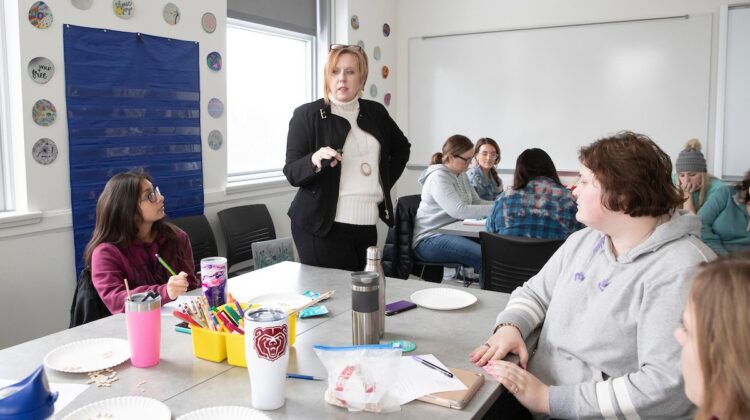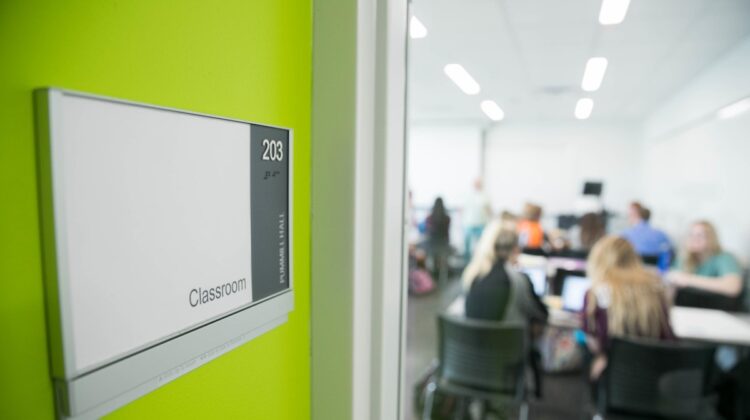Dr. Stefanie Livers, associate professor in the department of childhood education and family studies, is a renewed national board-certified teacher through The National Board for Professional Teaching Standards (NBPTS).
“As a teacher educator, it is important to maintain my national board certification and model consistent self-improvement for both my teacher candidates and graduate students,” Livers said. “It shows that I can implement the philosophies and methods that I am teaching in actual elementary classrooms.”
Livers initially received her certification in 2001 and recertified for the first time in 2011.
What it takes
To earn board certification, teachers complete a performance based, peer-reviewed process, demonstrating their proven impact on student learning and achievement.
“They put their teaching to the test and voluntarily challenge themselves by reflecting on their practice and confirming that they are teaching to the highest standards,” said Peggy Brookins, president and CEO of the NBPTS.
Livers has joined a growing community of more than 130,000 board-certified teachers in the United States.
“We work to drive teacher quality to help assure that all youth in America have equal access to the best possible teachers,” Brookins said. “I encourage all Americans to pause and celebrate our national board-certified teachers.”





